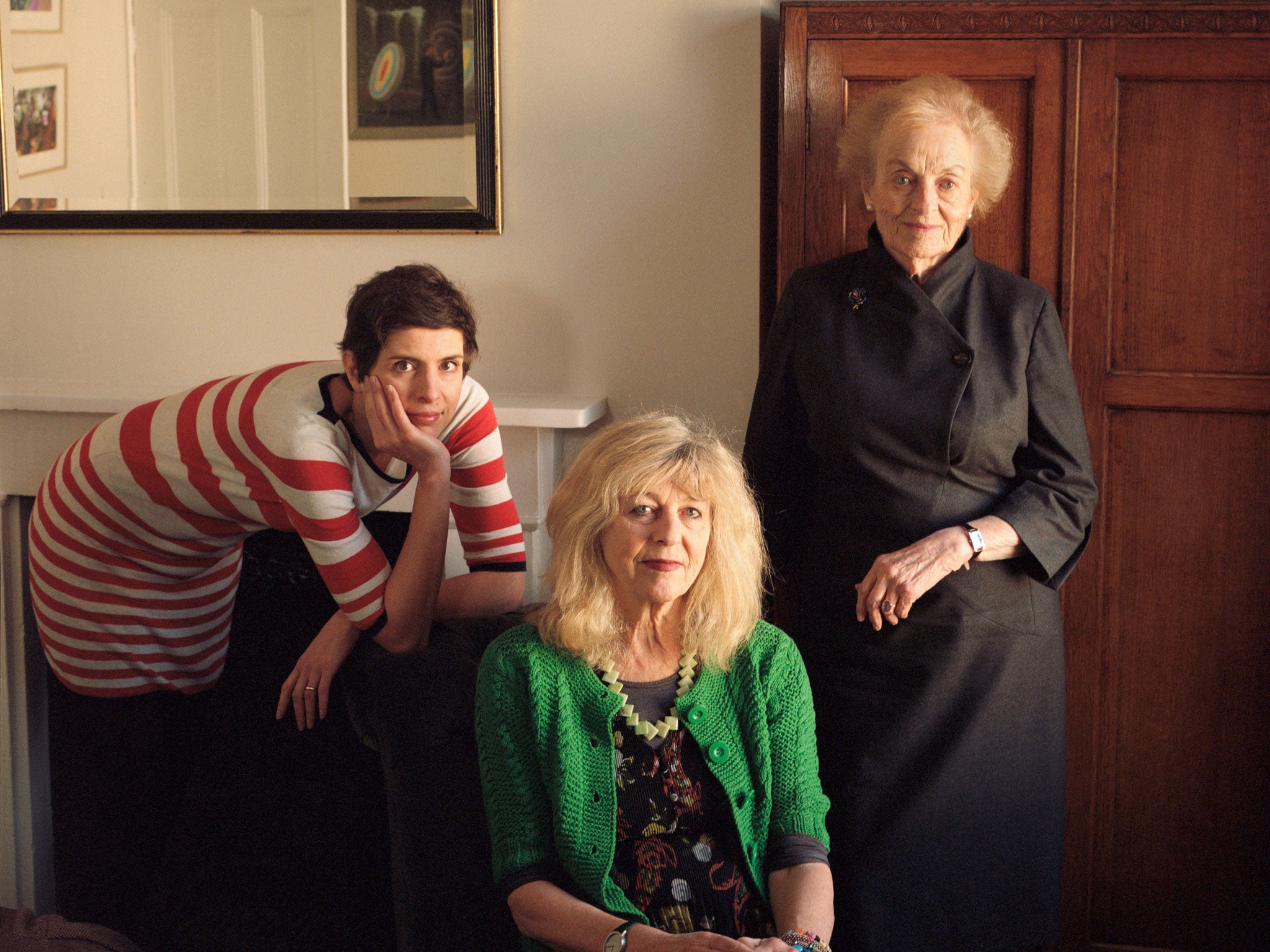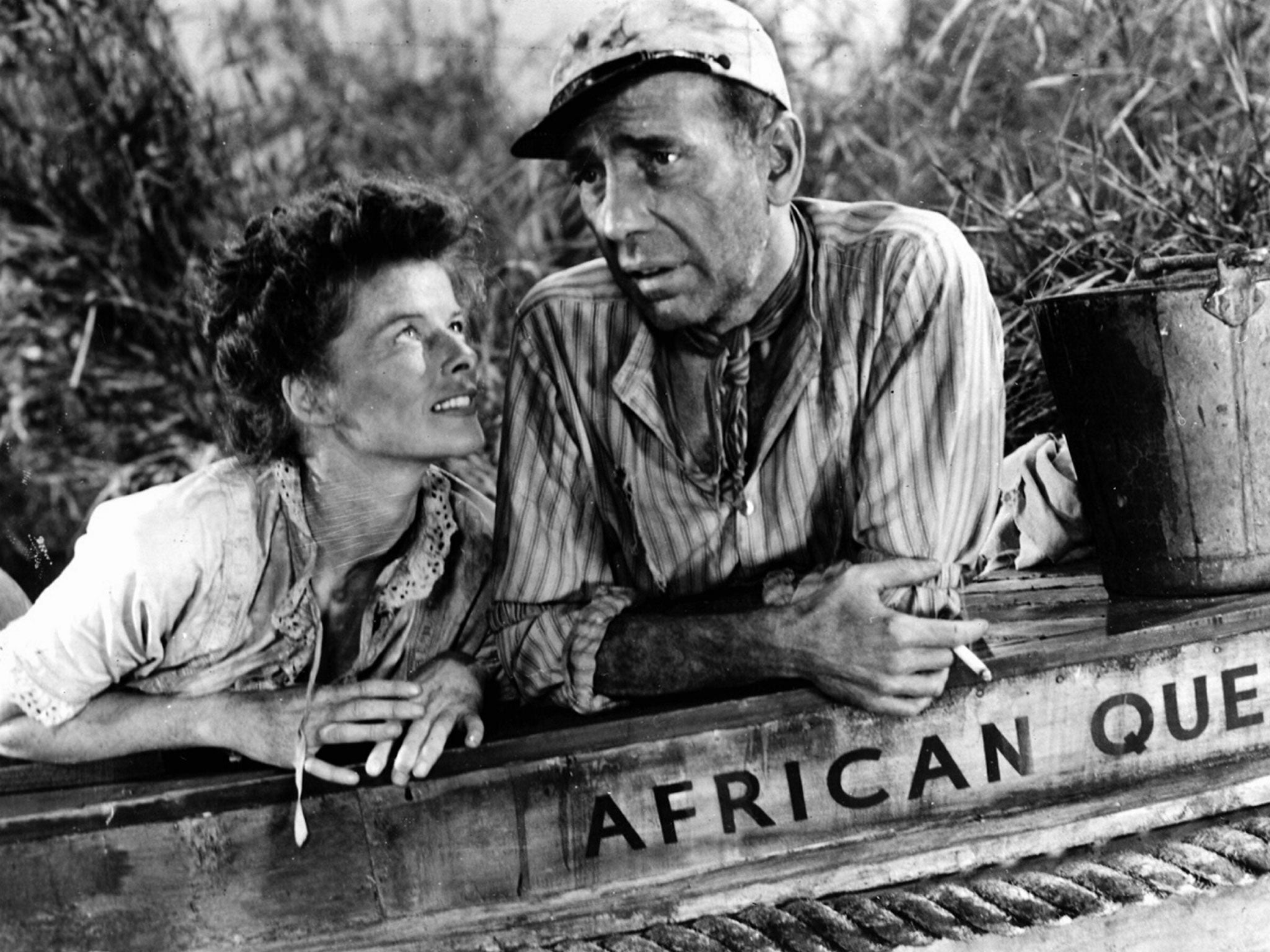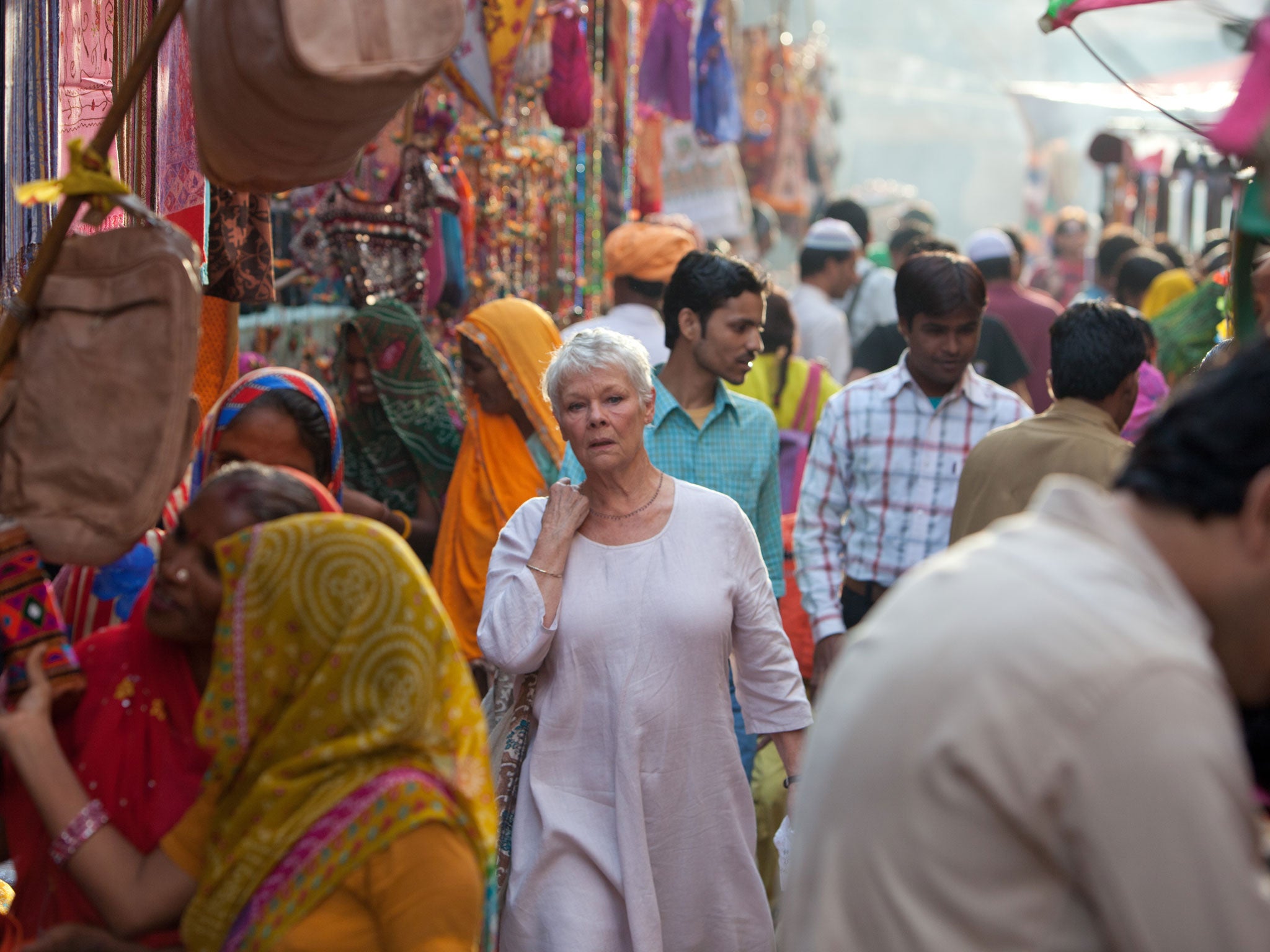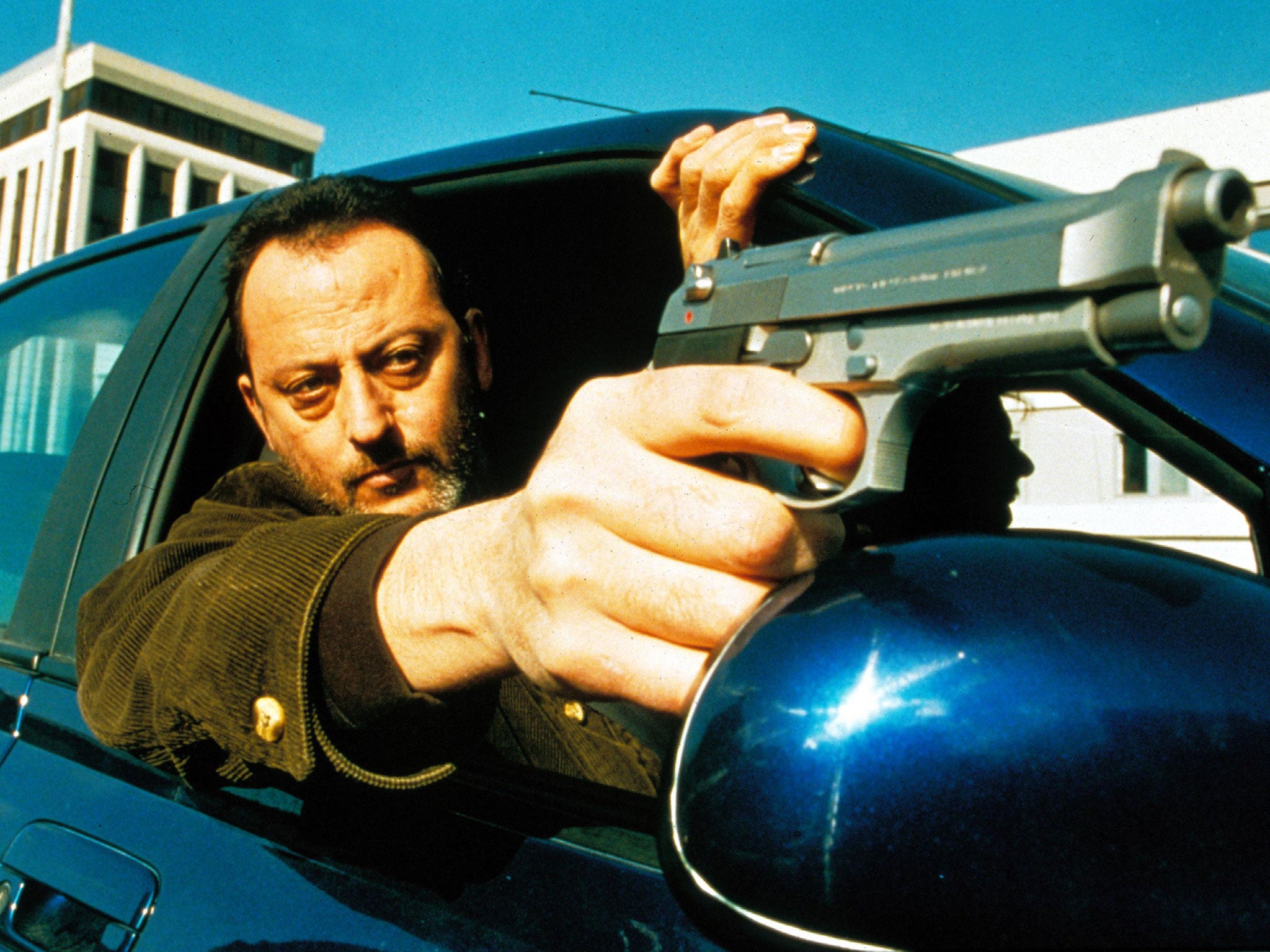Sexism in Hollywood: From flirtatious film critics to being accused of sleeping with the director
Sixty years ago, 'script girl' Angela Allen was assumed to be sleeping with the director; a decade ago, screenwriter Deborah Moggach was asked why she was 'scribbling away' on set; even now, film critic Larushka Ivan-Zadeh feels like the odd one out. They discuss how far film has changed its sexist ways

Your support helps us to tell the story
From reproductive rights to climate change to Big Tech, The Independent is on the ground when the story is developing. Whether it's investigating the financials of Elon Musk's pro-Trump PAC or producing our latest documentary, 'The A Word', which shines a light on the American women fighting for reproductive rights, we know how important it is to parse out the facts from the messaging.
At such a critical moment in US history, we need reporters on the ground. Your donation allows us to keep sending journalists to speak to both sides of the story.
The Independent is trusted by Americans across the entire political spectrum. And unlike many other quality news outlets, we choose not to lock Americans out of our reporting and analysis with paywalls. We believe quality journalism should be available to everyone, paid for by those who can afford it.
Your support makes all the difference.Angela Allen became a script supervisor after starting out in continuity in 1947. Her 55-year career took in films including The Third Man, The African Queen, The Dirty Dozen, The Man Who Would Be King and Ronin.
Deborah Moggach is the author and screenwriter of The Best Exotic Marigold Hotel, Pride & Prejudice (the 2005 version) and Tulip Fever (which is out later this year).
Larushka Ivan-Zadeh is a film critic.
LI-Z: Angela, you began your career in the 1940s. Was the film industry considered "a job for women" back then?
AA: Unless you were in hair or make-up, it was very much, "You're the secretary." A lot of producers thought of continuity as glorified typists. It wasn't until the 1980s that women started training as things like cameramen – or camerawomen. We were known as "script girls". I did 14 films with John Huston and I was always told, "Of course, you were John's mistress." Of course I wasn't. None of John's mistresses lasted more than a year! It took me 10 years of working for him before I asked for a promotion. He said, "What do you want that for? You're unique." I said, "Yes, but I'm not paid that way." I certainly didn't get anything extra for all the jobs I did.
LI-Z: What sort of jobs?
AA: Everything! On The African Queen I did some second-unit directing; I was only 22. On Freud, I held up cheat boards for Monty Clift because he was in such a state he couldn't remember his lines. On Pandora and the Flying Dutchman, I had to get in a swimsuit to body-double for Ava Gardner one night because Frank [Sinatra] was in town and she didn't want to get in the water. I was the youngest woman around who could swim, so I was pushed to do it. Ava was sort of engaged to Frank at the time, but we all knew she was having a romance with this mad bullfighter in the film, so when Frank was coming over, I had to get him out of the way.
DM: Angela, I envy your job because it really is the lynchpin of everything. It's continuity and hair and make-up who get all the confidences. As a writer on set, you are the only person without a job. I always feel like I'm in the way. Though Judi Dench came up to me on the set of The Best Exotic Marigold Hotel and said, "We wouldn't be here if it wasn't for your lovely book – you have to remember that."
LI-Z: Have you encountered much sexism as a writer?
DM: A well-known actress once came up to me at a party and said, "Are you still scribbling away?" She wouldn't say that if I were Julian Barnes!

LI-Z: As a female film critic you can feel you're the odd one out, particularly when it comes to your take on a movie. Criticism used to be far more of an old boys' club when I started, 15 years ago. The first press screening I ever went to, a much older, male critic asked, "What are you doing here?" before flirting with me. I'd say 75 per cent of any press screening I go to is still male. Angela, I imagine you were often the sole woman on set apart from the female stars. Did you bond?
AA: I stayed very friendly with Ava Gardner. But Marilyn [Monroe] was very bitchy to me on The Misfits. I said to John [Huston], "Oh God, what have I done?" He said that Marilyn had decided that I was having an affair with Arthur Miller. He was the screenwriter, you see. And I often had to re-type the whole script (not that that was my job either!), so I'd be going up and down to Arthur's room with it. Of course, she had an affair with a Frenchman on her previous picture, but she would never be "guilty", so she had to blame him for something.
LI-Z: What about the directors you worked for. There were some titans: Huston, Sidney Lumet, Franco Zeffirelli. Were you ever bullied?
AA: No, I mean Huston never lost his temper. If he wanted something, he would just sit and read a book until it came to him. John Frankenheimer would go raving mad at the crew, but he never screamed at me. Don Johnson was horrendously rude to me once on Dead Bang and Frankenheimer told him off in no uncertain terms.
LI-Z: Debby, how often are you called on to fight your corner? Perhaps when protecting your script?

DM: You can't be too sensitive or protective of your stuff. I consider that the script is just a wonderful blueprint you give to the film-makers. It's quite different from writing a novel, where you've got a private world to do with what you like. You have to be incredibly bouncy and resilient and adaptable to work in film. Actually working with production teams that are largely women is interesting. Say a woman's daughter is ill and off school; there's generally an understanding and a shifting of schedules.
LI-Z: Do long hours put women off the film industry? Is that a reason why there are still so few female crew members, particularly so few female directors?
AA: I don't think so. I don't have children, but most people I worked with did. You might be away a lot, I suppose. But no, I don't think it prevents anybody.
DM: I disagree. I think it's really tough for people with children to work on a set – men or women. You can't do the two. You go away for months on end and so many crew I've talked to seem to be divorced; it's just a ghastly career for marriage.
LI-Z: It's not until you have babies that you realise how un-family-friendly much of working life is! Most press screenings, for example, start at 6.30pm – exactly at bedtime. What do we think could be done to make the film industry more child-friendly?
AA: When I started, it was 8.30am till 5.30pm and you'd have to ask the unions if you wanted to push on until 6pm. Now it's 12 hours-plus a day on sets, which actually means more like 14 or more working hours, six days a week, which is actually illegal. England breaks the working hours more than any other country. When I worked with John Huston, I knew he would finish at 6pm because he always liked to make dinner engagements. It was civilized.
LI-Z: And, if we could wave a feminist wand, what would we like to change about the industry?

AA: I do think that the feminist lobby is not actually doing itself any favours. Because there are certain things women can't do in life, physically. I don't care if it's a man or a woman doing a job, it should be on the basis that they are good at the particular thing.
LI-Z: I'd love more huge, female-led genre franchises, directed by women.
DM: I watched Thelma & Louise the other day. A great feminist film, but it's about women and men, and how women treat men. I'd like more films where the women are the story. It needn't be a groundbreaking feminist statement. It needn't be remarked upon. Like in Notting Hill, where one of the characters is in a wheelchair, but it's barely remarked upon. Like in [the Danish TV crime series] Borgen, which everyone adores, we take it for granted that the two leads are women, and it is never pushed. I think film is lumbering behind television here. That said, for every Borgen, there are about five TV series that open with a mutilated woman's body in the wood, with the rain pouring down, and she's a prostitute. It's really terrible that this is still happening. I want more films where the actors happen to be women, of all ethnicities and ages.

AA: I'm sure that when The Best Exotic Marigold Hotel was first proposed, particularly men in the industry would have said, "Oh my god, how can we have old people on screen? Ew – young people don't want to go to the cinema to see that!"
LI-Z: And it became one of the highest-grossing films of the year!
DM: I think the big success of that film was partly to do with the fact it showed that people of a certain age are the same as everyone else. It wasn't about them all having incipient dementia or gasping and clawing at the duvet as they die. It showed that old people fall in love, they work, they get jealous, behave badly. They are just what we all are and they happen to have a few wrinkles. It gave hope to people that they could go to the cinema and see just normal old people. The same with cross-racial casting or women doing jobs – they're just women doing jobs.
AA: I feel lucky that at my age I can still drive and get about and work. You don't have to be dead because you've passed 25. I joke that, in England, once women pass 30 we should go to interviews with a veil on so they can't see the wrinkles!
LI-Z: Talking of jokes, Angela, am I right that you were often teased on set?
AA: Oh, I was the butt of a lot of jokes. On The African Queen, my first film, I was only 22, still a virgin, and they told me, "John [Huston]'s got to have a woman," you know what I mean? "And you're the youngest." It was a set-up but I was so straight, I was protesting, "No, no, I can't. He's just got married and [his wife's] having a baby" – Angelica was born during the shoot. After 10 years or so, I realised the teasing was a sign of affection. But sometimes it would go on for days. Still, I have survived.
Join our commenting forum
Join thought-provoking conversations, follow other Independent readers and see their replies
0Comments